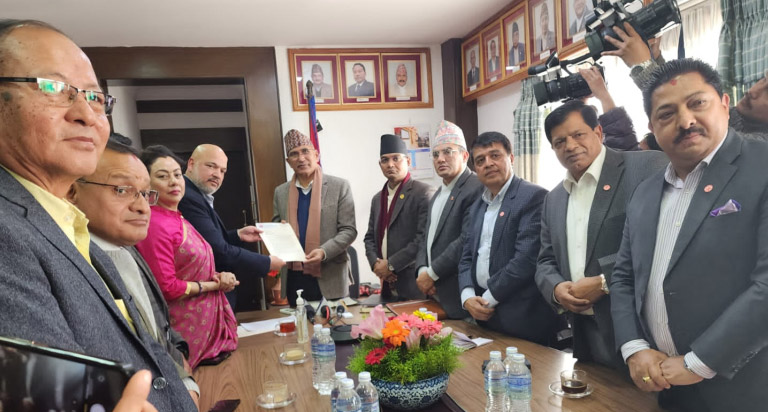Money & Finance

The Federation of Nepalese Chambers of Commerce and Industry (FNCCI) has said that revising the working capital loan guidelines will not stimulate economic growth.
Reacting to the Nepal Rastra Bank’s revision to the working capital loan rules, the federation stressed the need to address other concerns, including liquidity and bank interest rate, to boost the economy.
In response to constant pressure from the private sector, the central bank on Wednesday amended the guidelines that have been in place since last October.
Although these provisions are favourable, they cannot make the economy viable in the current situation, the FNCCI said.
The private sector has demanded a reduction in interest rates to resolve the current liquidity crunch.
Interest on loans has reached at least 14 per cent. Yet it’s difficult to take out loans for operating businesses which has left the companies on the brink of closure, the federation said.
“Depending on the nature of the industry, different working capital loans are required,” the FNCCI said in a statement. “It’s impractical to make the limit of a working capital loan of more than Rs20 million only 25 per cent.”
According to the nature of the industry, different current capital amounts are required, so it is impractical to limit the current capital loan of more than Rs 20 million to 25 per cent only, it said.
Similarly, it has demanded to increase the upper limit of a working capital loan of permanent nature to 10 years.
Similarly, since it is specified that security of any sort of fixed or immovable property (such as a house or a piece of land) other than current assets is not required for working capital loans, it has been proposed that no personal guarantee be required.
The provision requiring all renewable working capital loan accounts to be in arrears-free status for at least seven consecutive days at any point throughout the fiscal year is unworkable, the FNCCI said, demanding its elimination.
"It takes 1-4 months for industries that import raw materials from abroad to make goods, from the time a letter of credit is opened until the raw materials arrive at the industry through shipping and transit.
It has also suggested that the law on collecting credit be put in place immediately since getting money from the market takes 3-6 months.
Due to the difficult economic situation, the borrowers cannot pay the principal and interest of the second quarter (mid-January) of the current fiscal year, which will increase the risk in the overall financial sector.
Demanding restructuring and rescheduling of loans by mid-March 2023, the federation has pointed out the need to use the central bank's financial and monetary tools to reduce the high-interest rate to make the economy vibrant.






